Peggy Gou: A Force of Nature
One of the coolest and most in demand producers and DJs globally
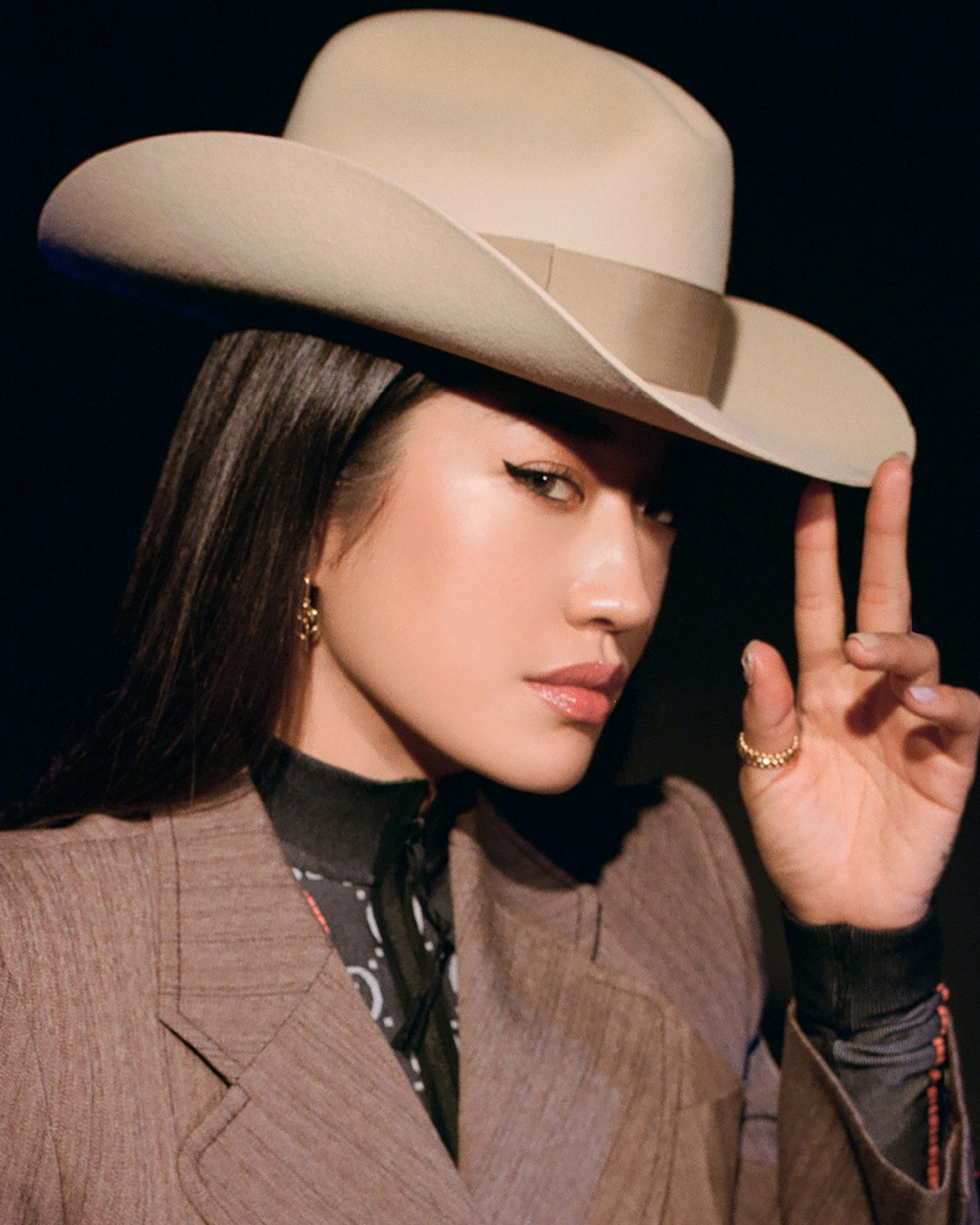

Peggy Gou is a force of nature. She is one of the most in demand producers and DJs in the world and she cuts an intimidating figure. You can tell she doesn’t suffer fools gladly. As we sit down to chat, I’m nervous. She’s in her Berlin apartment, fresh off an intense month of touring and two mega Coachella sets. She’s dressed in what looks like a pink velour tracksuit and transparent-framed librarian glasses. This is her cosy at-home get-up but you get the feeling she’d just as easily manage to make it look iconic playing to thousands of people. “I am so jet lagged. I’ve been sleeping 12, 15 hours every day for the last two days. I think I needed that because for a whole month I didn’t sleep.”
You get the impression Gou doesn’t have much time for sleep. She tells me the month has been a bit overwhelming. She’s still wrestling with what she just experienced. She had spent much of the pandemic grounded in her Berlin apartment. No wonder the whirlwind touring has been a lot to take in. “The energy, I think, is even greater, because people were so hungry to party. And I think they appreciate it even more than before. I’m obviously happy to be back and to see my fans and supporters and colleagues. Other DJs, other musicians. I feel like I knew this was gonna come back. A lot of people were losing hope during the pandemic. And I said, ‘no, it’s not gonna go back’ because it’s just not possible. Like you can’t take this away from people because that’s the only thing that allows people to really let themselves go.”

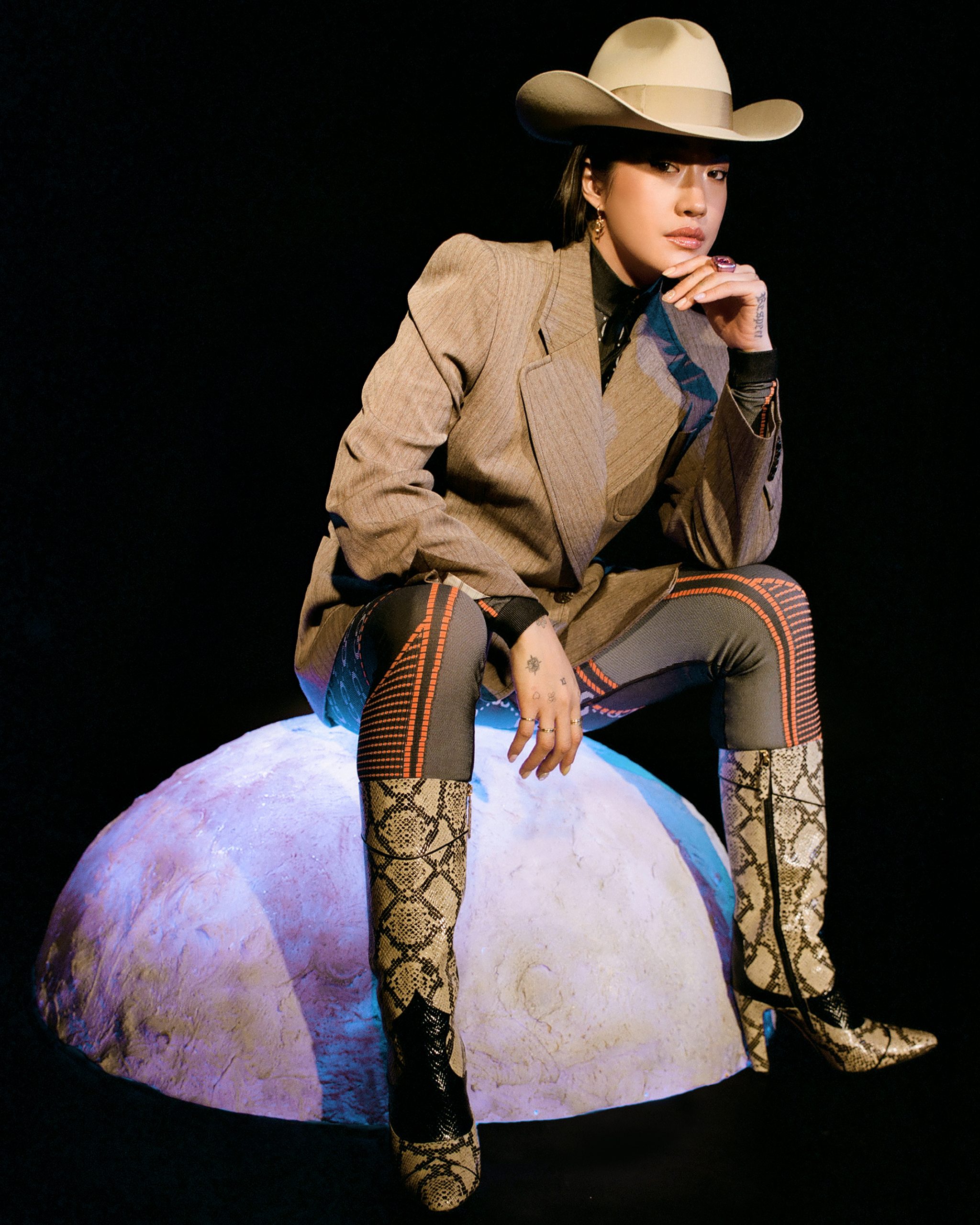
You get the feeling that even though she is back to somewhat of a crazy schedule, Gou feels appreciative of the second life we’ve all been given. I tell her about my weird habits during the first lockdown, where I’d watch YouTube videos of people partying at 90s raves. I just needed to see people sweating with each other. “Exactly,” she says enthusiastically, making me feel better already. “I mean, it’s a very cheesy quote, but people say music is life. For me, that’s one hundred per cent true. And even during the pandemic, people were trying to find a way to gather, to party to music. It’s just that it was separate.” We all remember our flirtation with the Houseparty app.
I’ve seen some refer to Gou’s success as overnight. But it’s like that Prince quote, that may or may not have been said by Prince, that overnight success usually takes years. I ask Peggy about it. “Well, before the pandemic, a lot of people were telling me that I’m successful, but I didn’t agree, because it was just the beginning for me. And a lot of people think it’s overnight because they think my success just came like that. But that’s not true. Some people take longer and some people don’t have the talent that I have. I’m someone who doesn’t sleep, who never ever stops working, who doesn’t stop thinking and who doesn’t know how to relax.” Relaxation is definitely not what comes to mind when I look at Gou’s life. She made her way to London aged 14, leaving her South Korean hometown of Incheon in the rear-view. She eventually studied at London College of Fashion, but was more interested in music than in her studies. Once she realised that, she moved to Berlin because that’s where she could focus on music. “Working at the studio, working at the record store, going to the club every weekend – that was also my school. Sending so many CVs to labels, you know, I was so eager to learn and I still am. I’m very curious and ambitious. Some people might think that it came to me fast just because in a normal world, it should take longer. That I should actually be 40.”
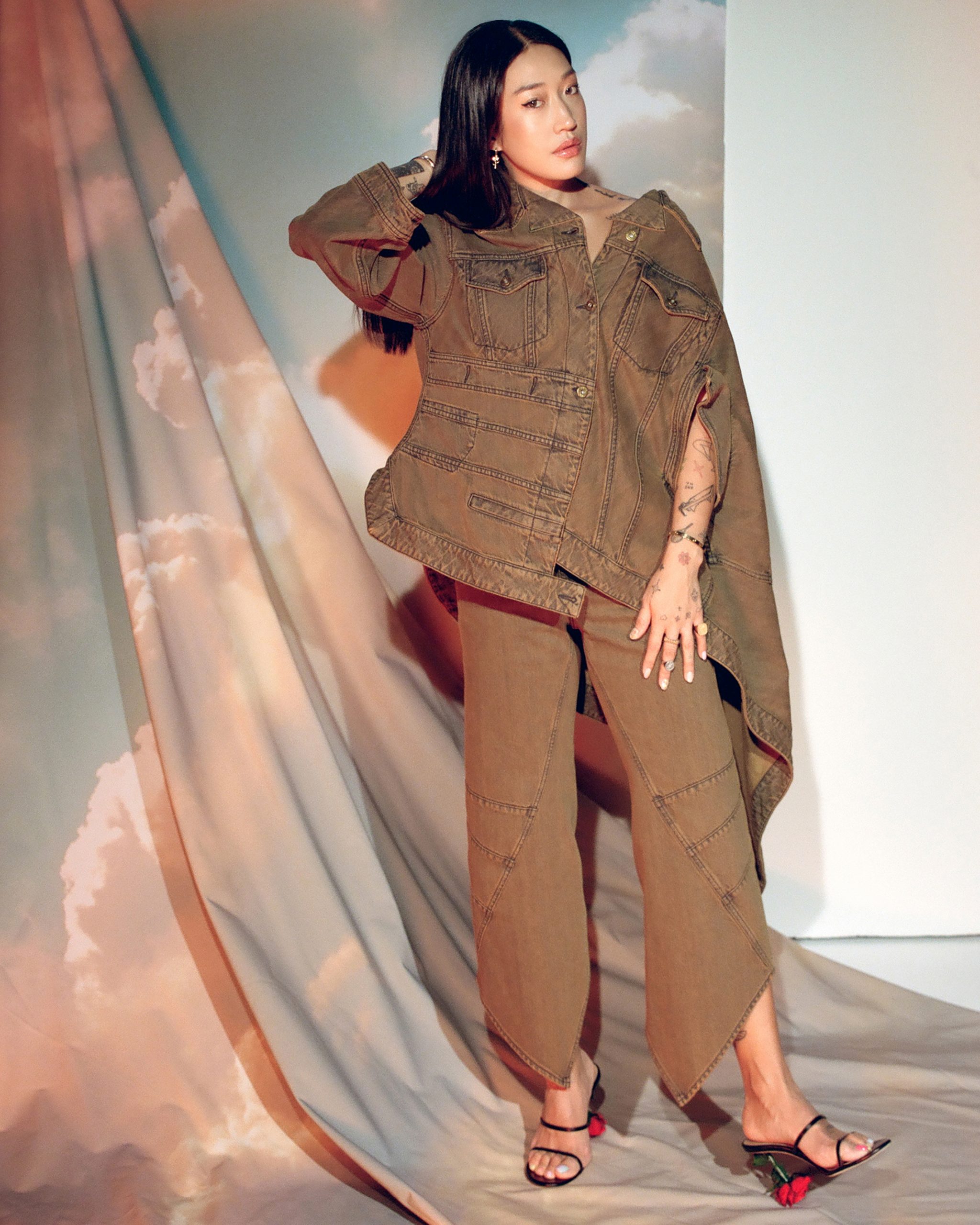
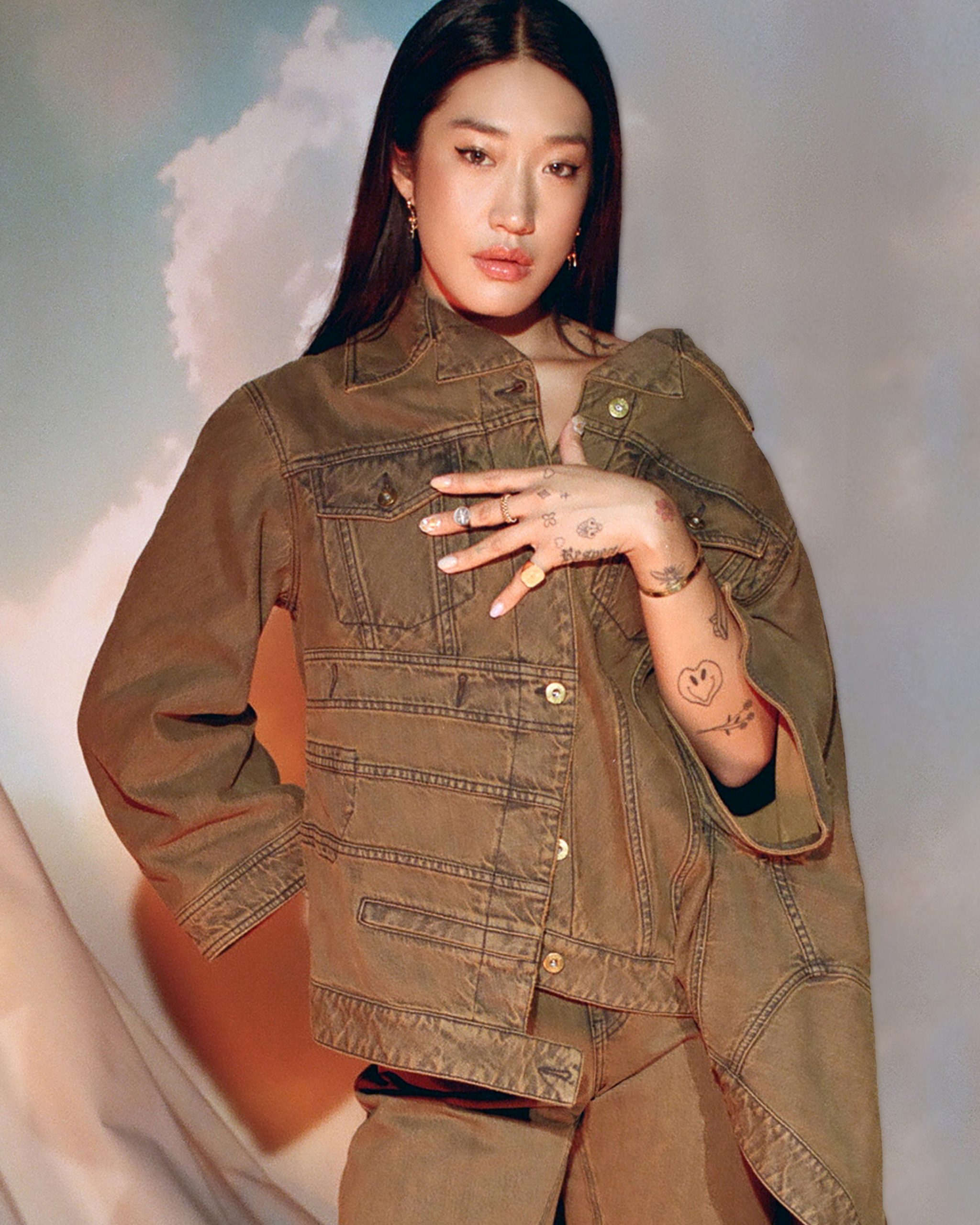
It always feels slightly odd when you hear someone objectively successful say they don’t consider they’ve made it. It’s probably the kind of mindset that makes them successful in the first place. “When you say you ‘made it’ a lot of people have a different definition of that,” says Gou. “Before the pandemic, I didn’t know how to stop. So that’s when I realised I’m working a little bit too much. I wasn’t really taking care of myself. I realised I should have taken care of myself physically and mentally a bit better.” It sounds like she has freed herself from the need to be everywhere all at once, although she admits that didn’t quite work out in the past month, which saw her playing huge gigs from Sydney to California. “However, I can tell you that before my April shows, I took two whole months off. Which I never used to do,” she admits. “But that didn’t mean I wasn’t working. I was working on something else every day. I wanted to focus on my production,” she adds, in case there might have been any doubts as to her work ethic.
A peek at her Resident Advisor listings tells me she’s in Tbilisi, Istanbul, Edinburgh, Copenhagen, Barcelona, you name it, over the next few months. When you tour so much, it can be hard to really call anywhere home. “Berlin is really nice to come back to as a home, but you’re right. When I was touring so much, I was here less than half of the year. But during the pandemic I was here. I have a new home and I was hanging out with my friends and that really was something I felt like I had missed out on. But Berlin is not only my home.”
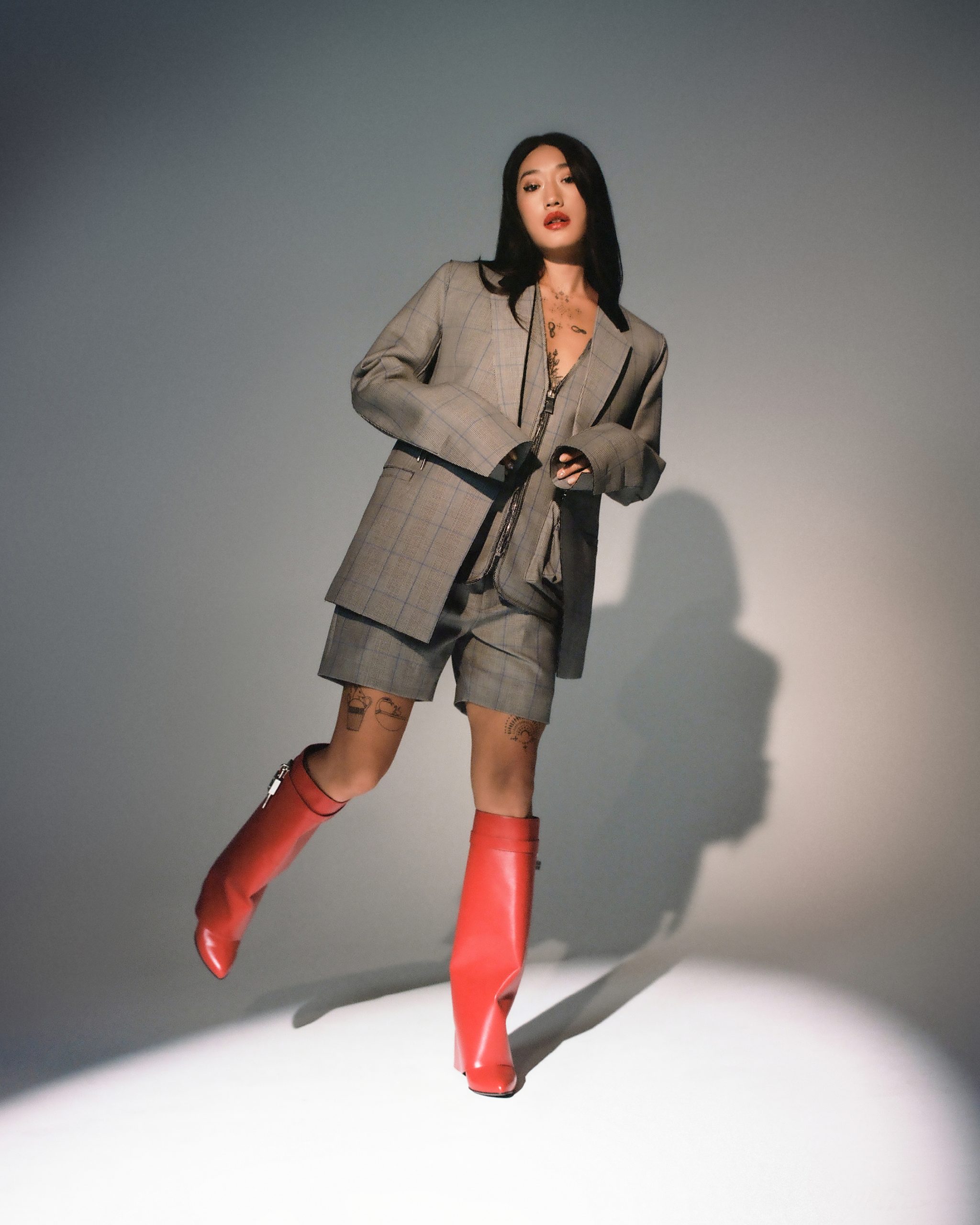
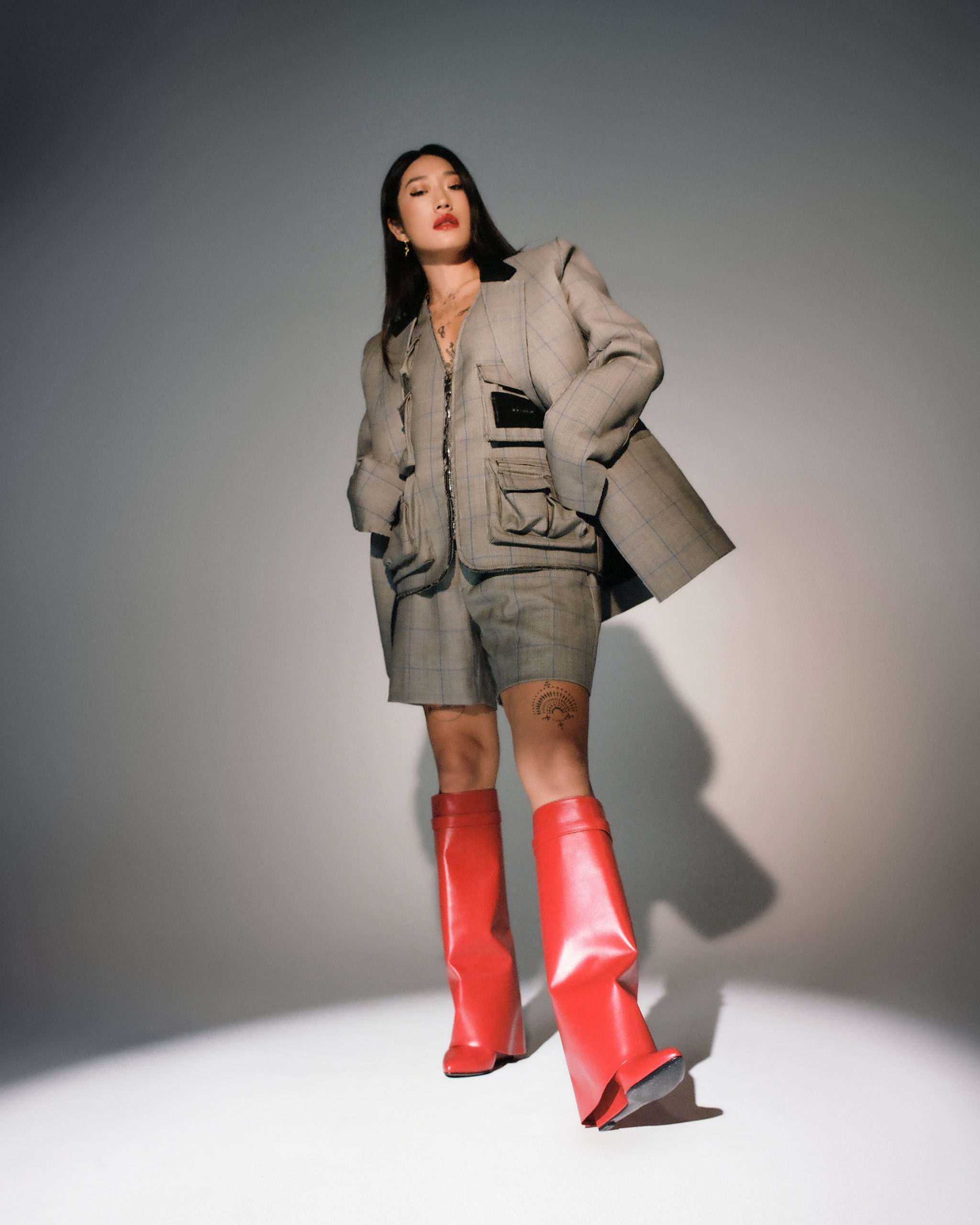
Even though a formative experience in Gou’s life was leaving South Korea aged 14 to go live in London, she never severed ties with her hometown. ‘That’s where my family and friends are. You know, Korea to me is like my battery. I go there to recharge and then I come back.” I’m happy she’s brought up Korea, because I want her thoughts on South Korea’s outsized impact on global pop culture. But it’s a pet peeve of mine, when a writer makes a person an ambassador for a whole culture. So I’m hesitant. I foreground this fear, telling her I know she doesn’t like talking about things beyond her own projects. “It’s a very good question,” she says, allaying my fears. “But I want to correct you. I would actually do anything for my community. I feel you may have mixed it up with something from one of my interviews where I got questions like “How does it feel to be a female DJ? Or did you experience misogyny?” And stuff like that. And I said, ‘look, I did experience it, but look at me, I’m killing it’. So I would rather not talk about this because this doesn’t affect me.” I had been scared that Gou might be standoffish, resistant to my questions retreading potentially boring territory for her. But she’s been exceedingly nice and accommodating, even complimenting me on my interview technique (which, in case you’re wondering, is to treat every conversation, even with an intimidating global megastar producer and DJ, as a chat with a good friend you miss and haven’t seen in a few months). Even when she corrects me, it’s obvious it’s just about getting facts right, never about control or power.
Now that that’s out of the way, we get back to Korea. “I always like to tell people that Korea is the future. K-Pop, K-movies – they’re killing it. And so a lot of people are paying attention to my country right now. When I was a student, they never asked me if I was Korean, they always asked me, “Are you Chinese? Are you Japanese?” But now the first thing people ask me is, “Are you Korean?” They know the country. In my opinion, there’s a lot of genius in Korea and they are one of the most hard-working people.” Gou tells me that while her Korean education taught her about how to get a perfect outcome, leaving that system early allowed her to see that there was a different perspective too. “I learned through my teenage life in London that the perfect outcome doesn’t matter – it’s how you do it, why you do it that’s more important than the outcome.”
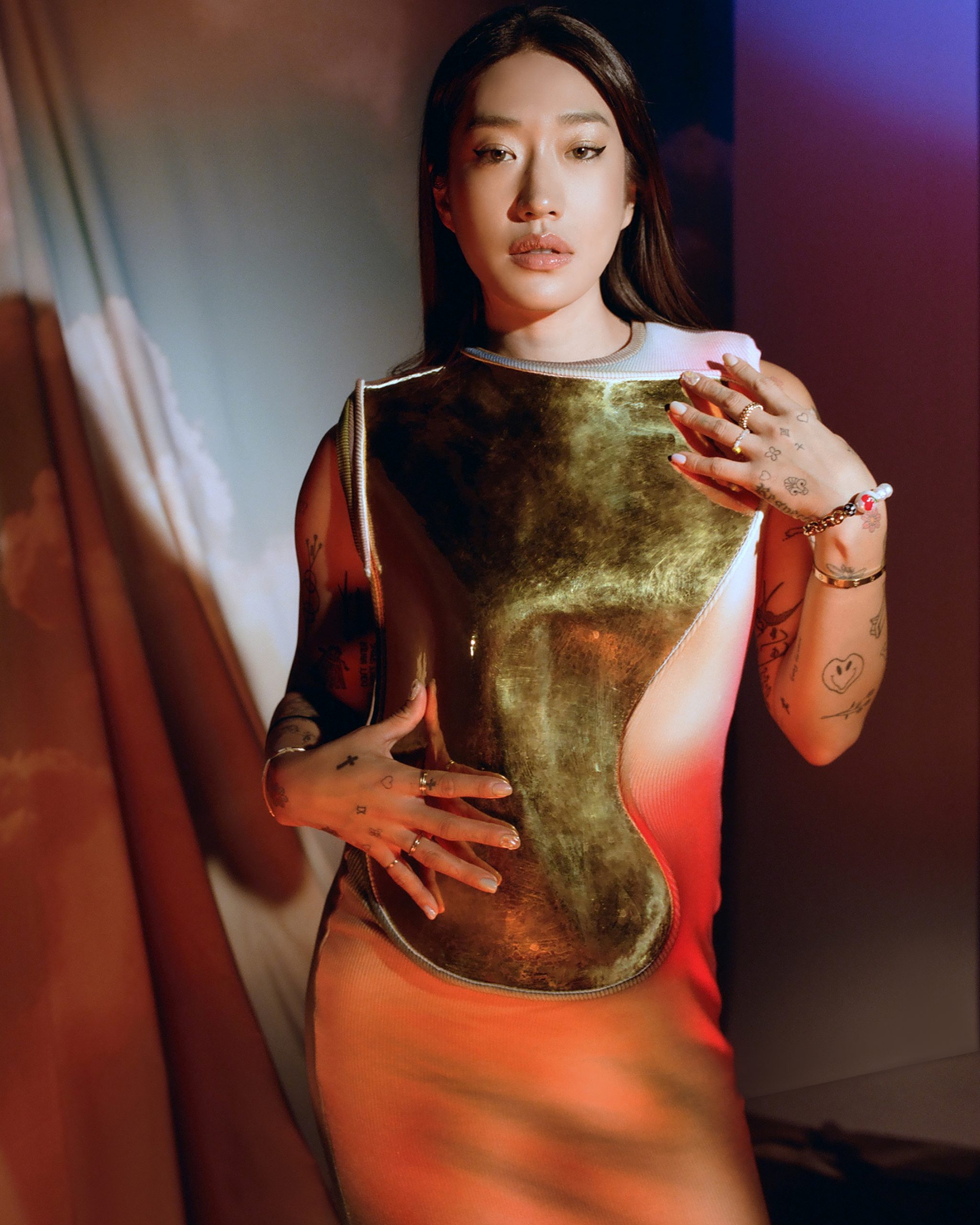
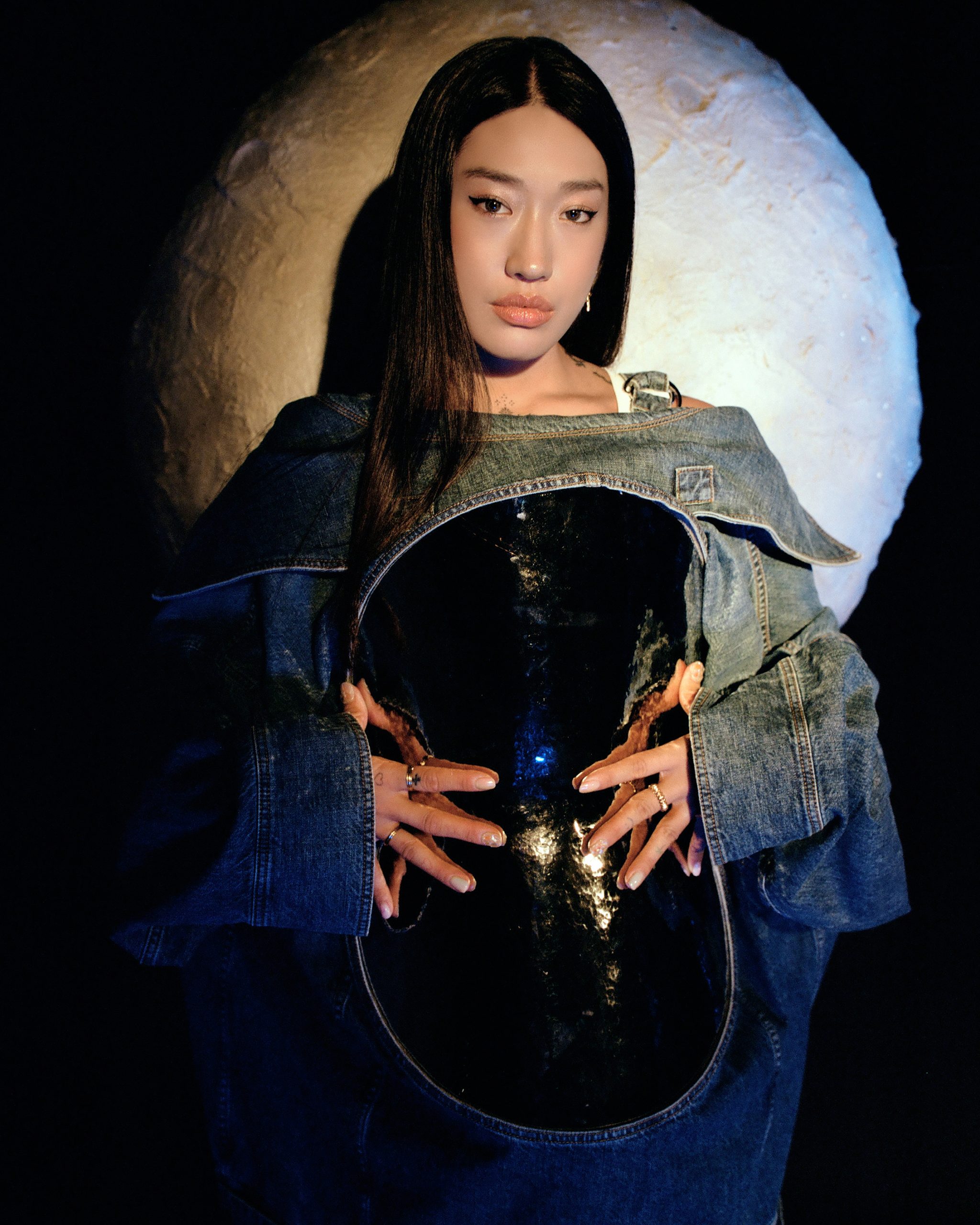
Today Peggy Gou is something of a brand. Even if you’ve never been to one of her sets, you’re aware of her. She has 2.4 million followers on Instagram. She has a record label – Gudu. She has a fashion label – Kirin, within Italian fashion empire New Guards Group, putting her in the company of the late Virgil Abloh’s Off-White. She’s an all-round fashion icon. “Yeah, I hear this a lot, that ‘now you have become a brand’. I feel it’s a very nice compliment, but I think one of the reasons why I was able to do that is because I don’t take s*** from other people.” It’s not that she doesn’t listen to the naysayers, it’s that she is fuelled by them. I ask if she ever worries that being successful will mean that people are opposing her less and maybe she loses some of that drive. “I think I maybe do love that my life is full of drama, but maybe it’s me causing the drama,” she jokes. “But you’re totally right. But I am also a person that is very direct. So a lot of people cannot take my directness. Nobody wants to hear the truth. I am not a person who’s afraid to give feedback or to fight my rights. You know, living in London and Berlin since I was 15, I was always in survival mode. So if there is anyone that attacks or is trying to bring me down, I think ‘I wasn’t ever scared of my parents, so who is gonna scare me now’.”
With Peggy Gou’s global domination well underway, I wonder what part the Middle East plays in her plans. I have a hunch that she holds an affection for the place. “Thank you so much for actually asking this question. There are two different parts of the Middle East that I can talk about in terms of the music scene,” she says with more enthusiasm than I was expecting. “Beirut is one of my favourite places to play,” she says when I mention I’m Lebanese. “Full of habibis,” she says with a big smile. “That’s actually one of my favourite words too. And I have a tattoo here in English and one in Arabic that say habibi,” she points to her clavicle. “I love the Middle East and I believe the Middle East loves me too. Every time I go, I am always surprised. I’m like, wow. The crowd here is just like, ‘there is no tomorrow’.” Her observation is astute and a friend of hers who lives in Beirut explained to her that she gets that feeling from the crowd in the city because that’s what a lot of people feel in their daily life there.
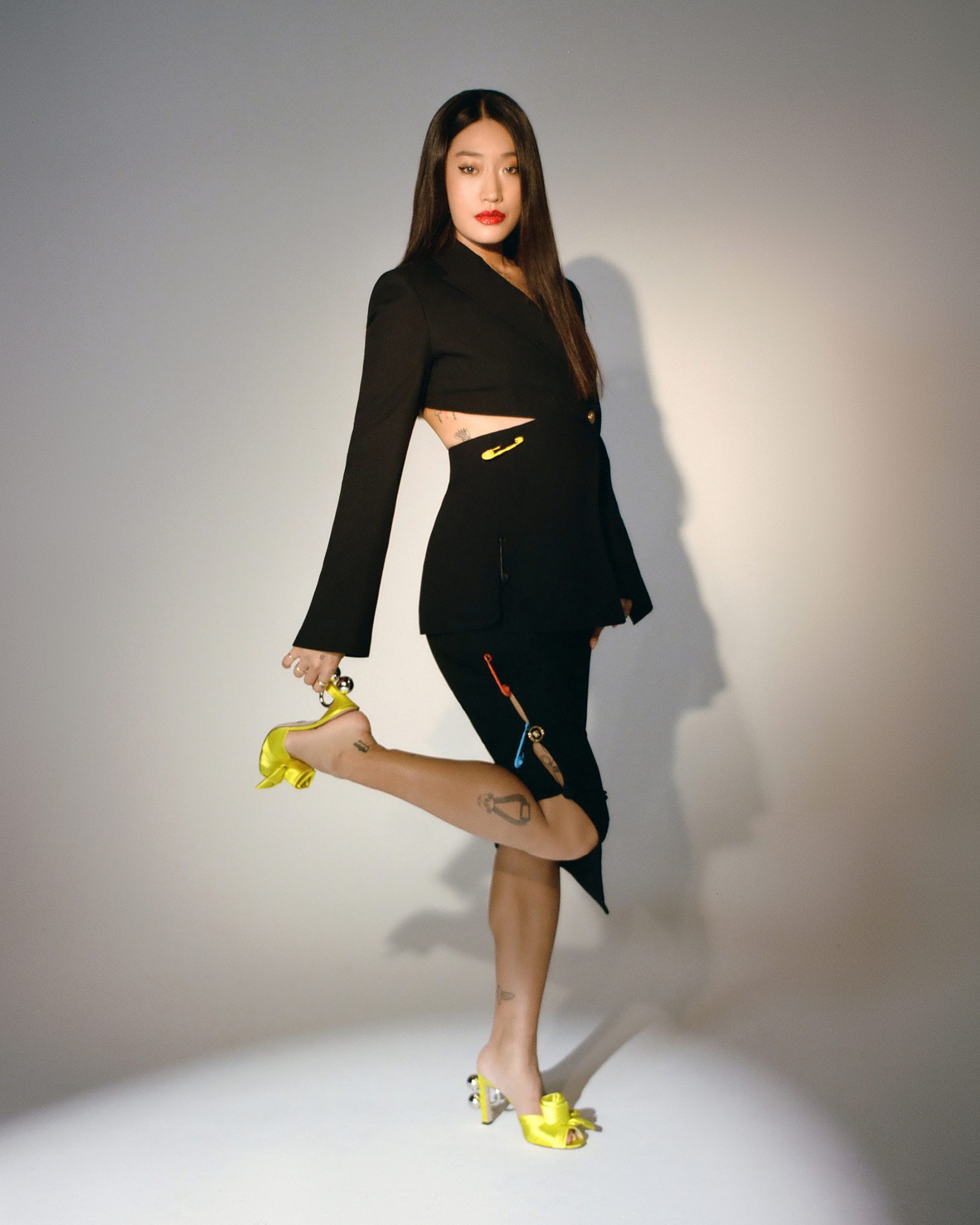
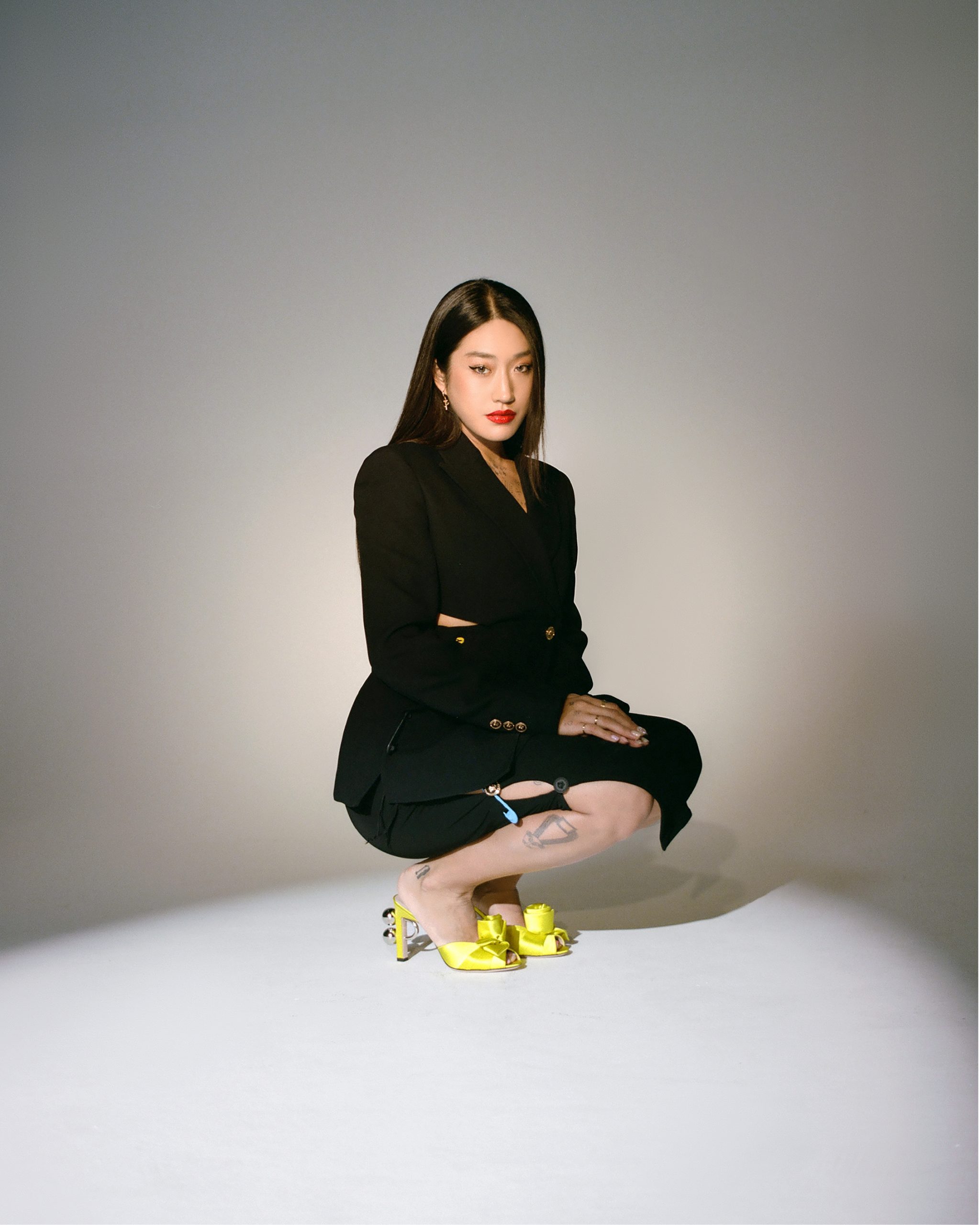
On the other side of the region, she’s been in Dubai and Abu Dhabi a lot recently. “Every time I go, something has changed very fast. I was just blown away. The last show I did to 6,000 people there, it was one of my best ever.” I wonder if she feels an affinity to the city because, much like she feels Korea is the future, that’s how I feel about Dubai, which has always felt like an Asian city to me. “Yeah! Actually I became friends with the Minister of Culture and she said to me, Dubai is very influenced by Korean culture. That’s what she told me.”
In preparation for our conversation, I watched a Q&A with Gou at the Oxford Union. She seemed genuinely moved talking about the mentors who believed in her early on and offered her words of encouragement. It seemed like the slightest compliment registered with her fully, just like the antagonistic swipes did. “That’s one of the reasons why I started my label. When I first started in my career, I wasn’t treated right. People used to try and discourage me so much. People used to tell me ‘who’s gonna buy your record?’, ‘No one knows who you are’ or ‘no one’s gonna listen to your song’. And I had to fight a lot for my first release. They wanted a male remixer on my record. So I thought, one day I’m gonna launch my label and I’m gonna let artists do everything they want to do. I didn’t want this to happen to anyone else.”
I’ve been sitting here wondering what the secret is to Peggy Gou’s success. A combination of her Korean work ethic with her London and Berlin love for process and style? Sure. Grit built through antagonism from an initially unsupportive music scene? That too. But I think the secret sauce is something unlearnable. As we speak she tells me she has a photographic memory. She is constantly cataloguing life and its experiences, which in her case take her to places many of us only dream of visiting. “My brain is like a library,” she says. I recall that I saw her say once that the only thing that matters in her creative process is taste. So I volunteer an observation, that maybe her secret is memory plus taste. Two things that are hers, and only hers. “Thank you! You just took the words out of my mouth. A lot of people ask me this question. It’s just that I know what I like. My taste comes from my experience and what I know and have in my brain. Whenever you love something, you just feel it immediately, instantly without having to rationalise it. It’s just like a feeling of love. I have good instincts, the goosebumps don’t lie.”
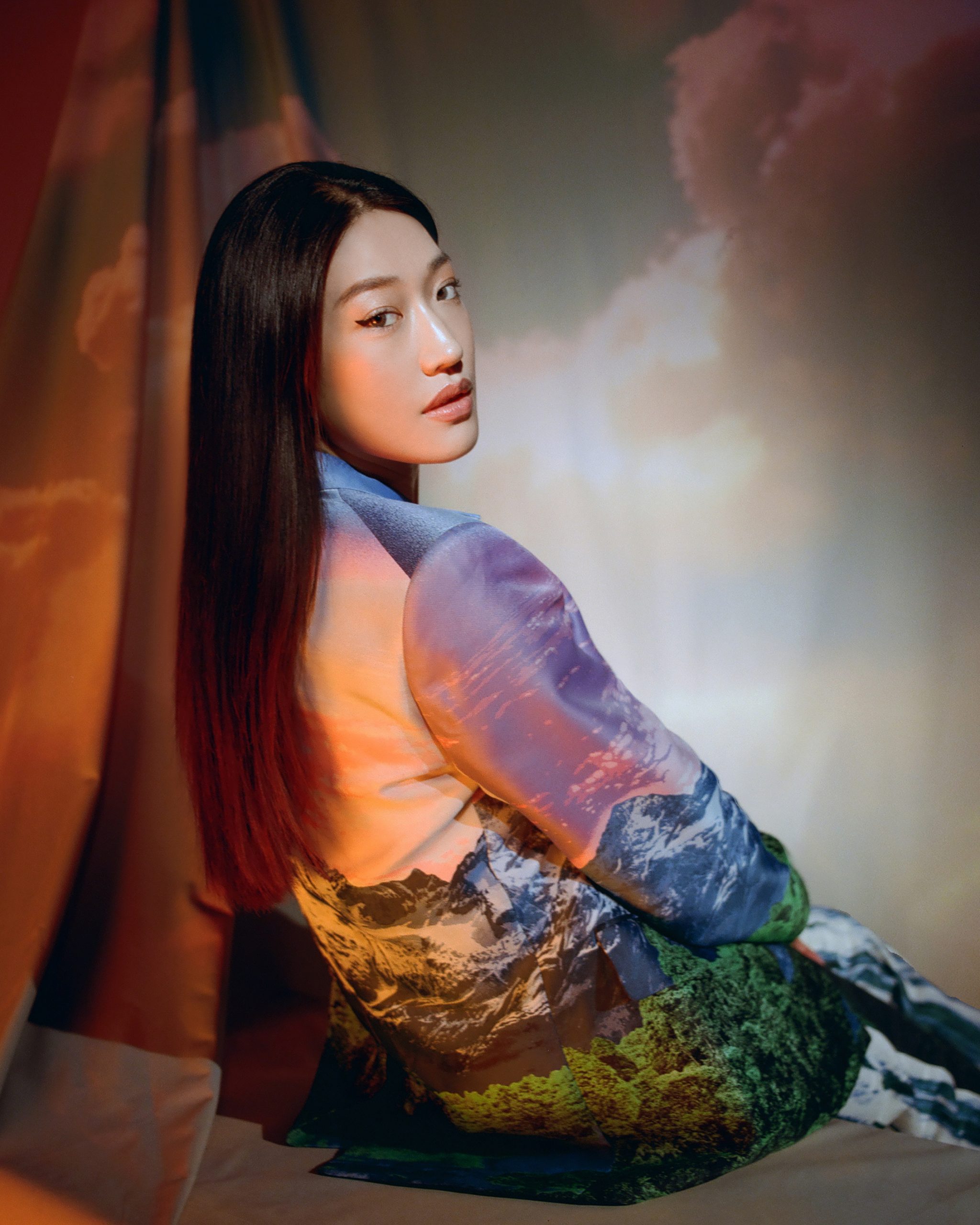
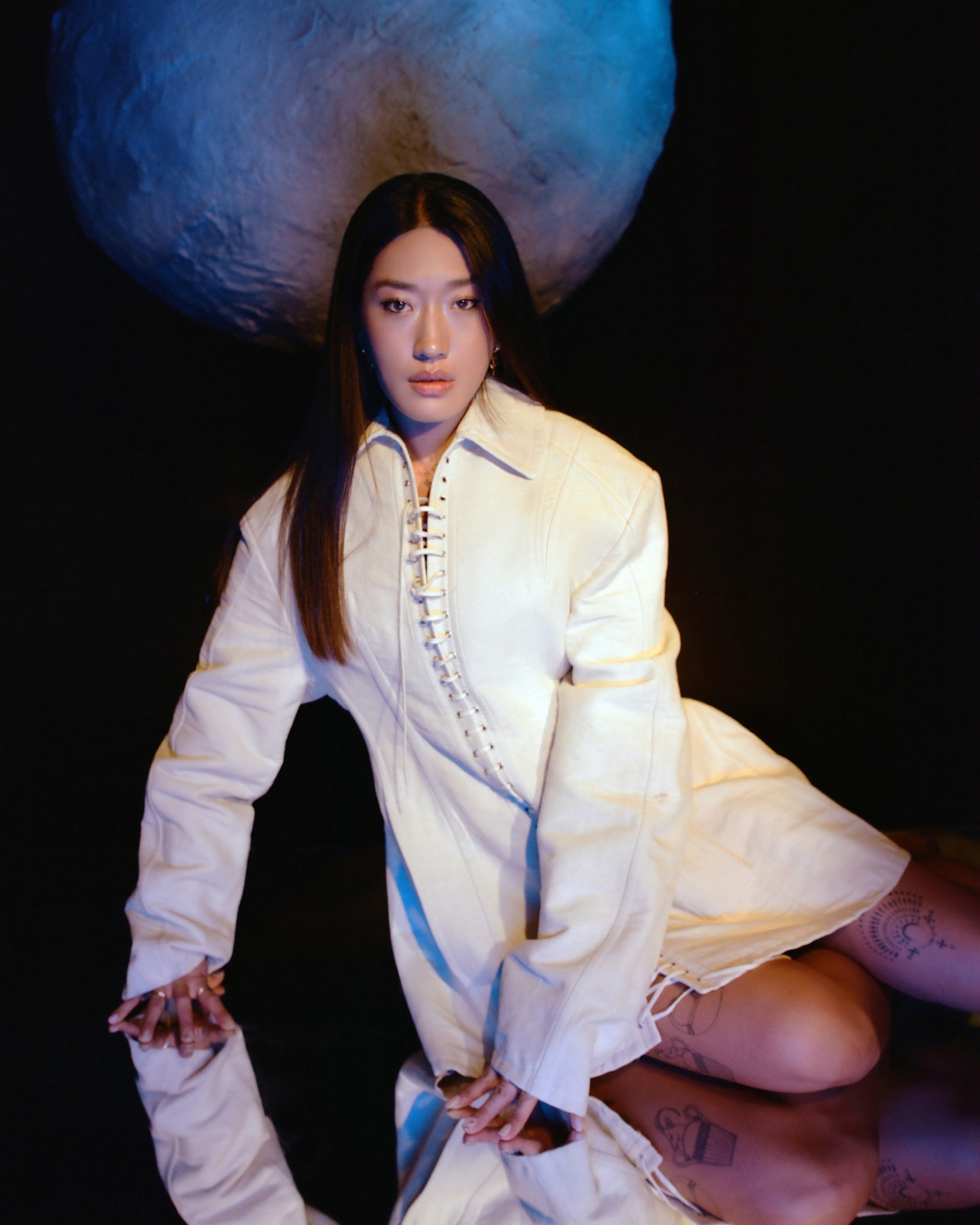
Photography: Prod Antzoulis
Creative Director/Stylist: Rusty Beukes
Features Director: Nasri Atallah
Creative and Talent Curator: Mohamed Elashy
Videographer: Conel Van Zyl
Set Design: Samantha at Aces of Space Studio
Production: Malaika Naik
Hair and Makeup: Jean Kairouz
Photography Assistant: Mary Lileonova, Jaypee Nardin
Fashion Assistants Bindhya Nelson, Michael Bello